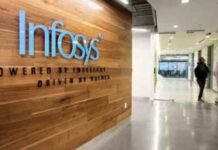
An American multinational information technology services and consulting company, Cognizant and Microsoft Corp. have joined forces to offer Microsoft’s generative AI and Copilots to millions of users, aiming to revolutionize enterprise operations, improve employee experiences, and expedite innovation across various industries.
Ravi Kumar S, CEO, Cognizant said, “That’s why we are investing $1 billion in generative AI over the next three years and leading the development of new research to explore its potential for our clients, their employees, and end customers.”
“We’re committed to helping them harness the power of generative AI at scale, and Microsoft Copilot is a proven tool that can bring transformative gains, unlocking talent and potential in ways we can only imagine”, Ravi Kumar added.
“Our expanded partnership with Cognizant will help organizations harness generative AI to transform business operations, enhance employee experiences, and deliver new value for customers,” said Judson Althoff, executive vice president and chief commercial officer at Microsoft.
As a component of the collaboration, Cognizant acquired 25,000 Microsoft 365 Copilot seats for its associates, in addition to 500 Sales Copilot seats and 500 Services Copilot seats.
This investment aims to boost productivity, streamline workflows, and revolutionize customer experiences within the company.
Moreover, Cognizant plans to implement Microsoft 365 Copilot for a million users across their global 2000 clients and spanning 11 industries. As part of Cognizant’s Synapse skilling initiative, 35,000 Cognizant developers have undergone training on Github Copilot, with another 40,000 developers scheduled to participate in training sessions.
This concerted effort aims to maximize the utilization of advanced technologies and enhance the capabilities of developers within the organization.
Cognizant and Microsoft are teaming up to provide tailored solutions for various industries, employing Copilot Studio. This platform empowers users to craft custom Copilots specific to their industry and business functions, utilizing generative AI models, business applications, and enterprise data.
While initially focusing on healthcare, the collaboration aims to extend to sectors including retail, financial services, life sciences, manufacturing, communications, and media. This strategic approach targets diverse sectors, enhancing efficiency and innovation across the board.
Note: We are also on WhatsApp, LinkedIn, and YouTube, to get the latest news updates, Join our Channels. WhatsApp– Click here, to subscribe to YouTube – Click Here, and for LinkedIn– Click Here.








